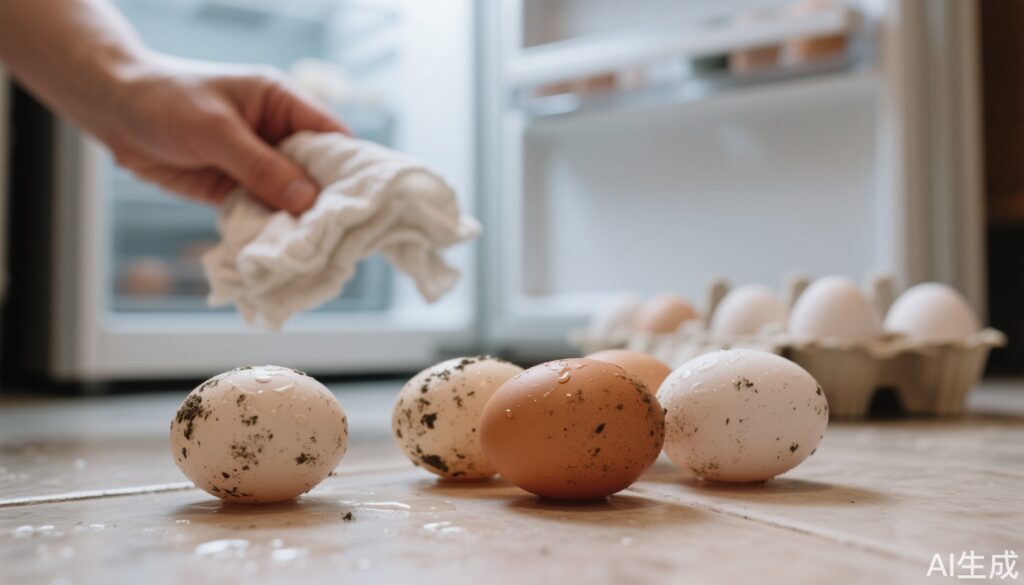Introduction
Eggs are a staple in diets worldwide, valued for their nutrition and versatility. However, ensuring their safety is crucial to prevent foodborne illnesses. A recent incident in Shenyang, China, highlighted the risks of washing eggs before storage, prompting health experts to revisit this practice.
The Science of Eggshells
Eggshells are not just a protective layer; they are porous structures with microscopic holes. These pores are covered with a natural protective coating, known as the bloom or cuticle, which acts as a barrier to bacteria and other contaminants. Washing eggs can compromise this barrier, making the eggs more susceptible to microbial invasion.
Misconceptions About Washing Eggs
Many believe washing eggs improves hygiene and prolongs freshness. However, this practice can have the opposite effect:
1. **Destroys Natural Protection**: Washing removes the protective cuticle, exposing the pores.
2. **Promotes Bacterial Penetration**: Water, especially if it’s contaminated, can carry bacteria into the egg through the pores.
3. **Accelerates Spoilage**: Washed eggs, even when refrigerated, can spoil faster.
Proper Egg Handling Practices
To ensure egg safety, follow these guidelines:
– **Avoid Washing**: If eggs are visibly dirty, clean them with a dry cloth or brush gently.
– **Store Correctly**: Keep eggs in a cool, stable environment, ideally in the refrigerator.
– **Cook Thoroughly**: Cooking eggs until both the white and yolk are firm kills most pathogens.
Expert Insights
Dr. Tsui Jun from Beijing Power Hospital emphasizes that thorough cooking is critical for safety. Soft-cooked eggs, while popular, carry higher risks, especially for vulnerable groups like the elderly, children, and pregnant women.
Conclusion
Understanding the risks associated with washing eggs before storage can help prevent foodborne illnesses. By adhering to proper handling and storage practices, consumers can enjoy eggs safely and sustainably.



